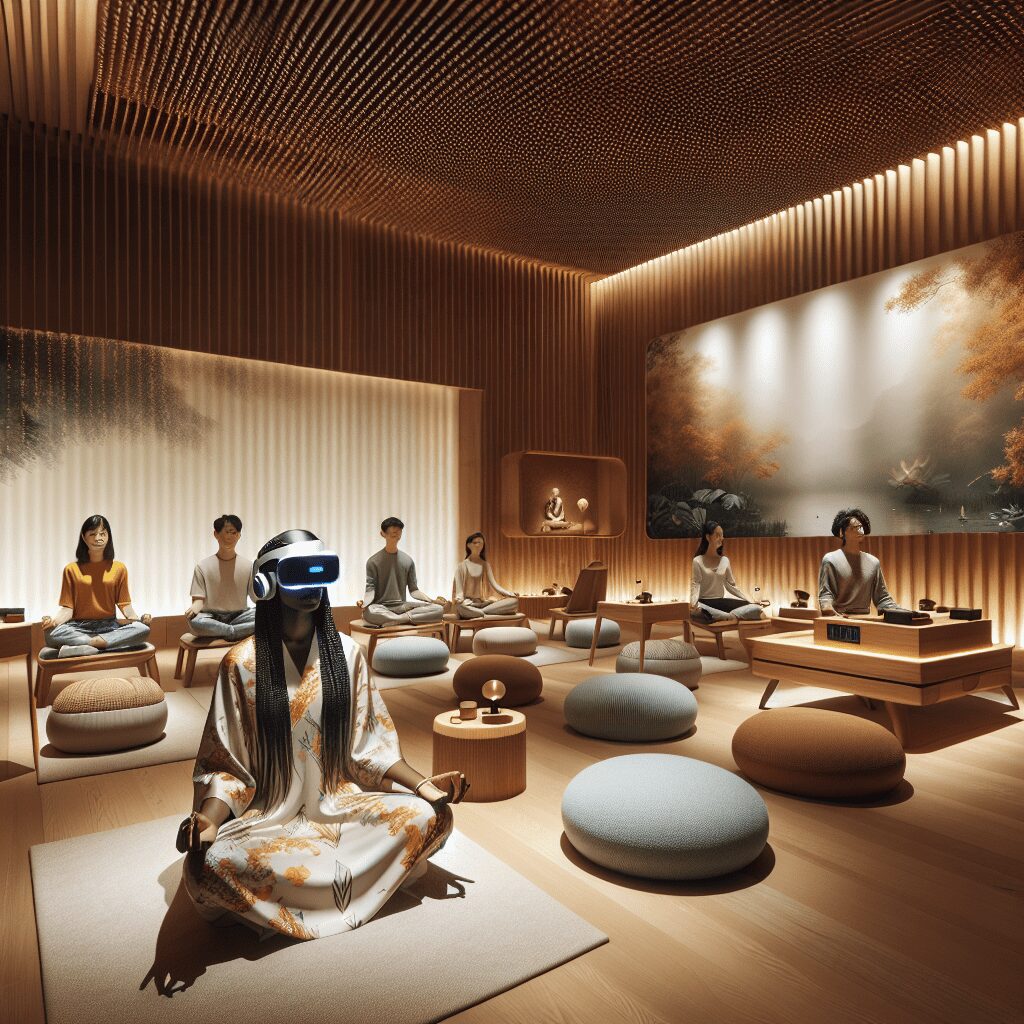
Prioritize your mental well-being daily. Enhance your life by nurturing your mental health with the Smart Meditation app. Break free from stress, alleviate anxiety, and enhance your sleep quality starting today.
Where To Get Help For Generalized Anxiety Disorder?
Navigating the Maze of Generalized Anxiety Disorder (GAD) Support
Feeling like you’re perpetually on the edge of your seat, heart pounding, and mind racing with a hurricane of ‘what ifs’? You’re definitely not alone. Generalized Anxiety Disorder (GAD), with its hallmark of excessive worry about everyday things, affects millions worldwide. But amidst this turmoil, there’s a beacon of hope—multiple avenues of support are out there, waiting to be tapped into. Let’s break down the options, unraveling the maze to find clear pathways to support and wellbeing.
Professional Support: Your First Port of Call
When the waves of anxiety seem too tumultuous to navigate alone, seeking professional help can be the lifeline you need. Here’s a rundown of the go-to experts:
- Psychiatrists: These medical doctors don’t just offer a sympathetic ear; they can prescribe medication, providing a two-pronged attack against GAD. SSRIs and SNRIs are commonly prescribed, offering a chemical calm.
- Psychologists and Therapists: A smorgasbord of therapeutic approaches awaits, from Cognitive Behavioral Therapy (CBT), which helps rewire thought patterns, to exposure therapy, making what seemed monstrous manageable.
- General Practitioners (GPs): Often the unsung heroes, GPs can be your first line of defense, offering initial assessments and referrals. They’re the gatekeepers to the specialized support you might need.
Community and Online Support: You’re Not Alone
Feeling isolated in your anxiety can exacerbate the symptoms. That’s where community and online support swing into the picture, offering a sense of belonging and understanding.
- Support Groups: Local or online, these groups provide a safe haven to share experiences, offering comfort in the collective struggle. They’re a reminder that you’re not navigating this path alone.
- Online Forums and Apps: From the anonymity of online forums to the structured support of mental health apps, digital resources are aplenty. They offer convenience and a constant connection to those who ‘get it’.
Beyond Traditional Pathways: Holistic and Lifestyle Approaches
Sometimes, it’s the unconventional paths that lead to breakthroughs. Here’s what you might consider:
- Mindfulness and Meditation: These ancient practices are making a modern comeback, promising peace in present-moment awareness. They’re not just buzzwords; they’re tools for tranquility.
- Diet and Exercise: Never underestimate the power of a nutrient-rich diet and regular physical activity. They can be formidable allies in your battle against anxiety, enhancing your mood and overall wellbeing.
The Verdict?
Getting help for Generalized Anxiety Disorder isn’t a one-size-fits-all deal. It’s about finding the right combination of professional support, community connection, and personal wellness practices. So, take a deep breath. Start by reaching out to a GP, explore therapy options, dip your toes into support groups, and don’t forget the transformative power of self-care. The road to managing GAD is as unique as you are, but one thing’s for sure—it starts with taking that first step towards help.





